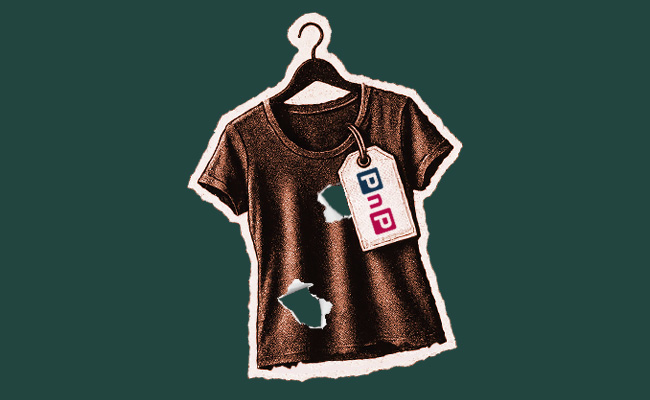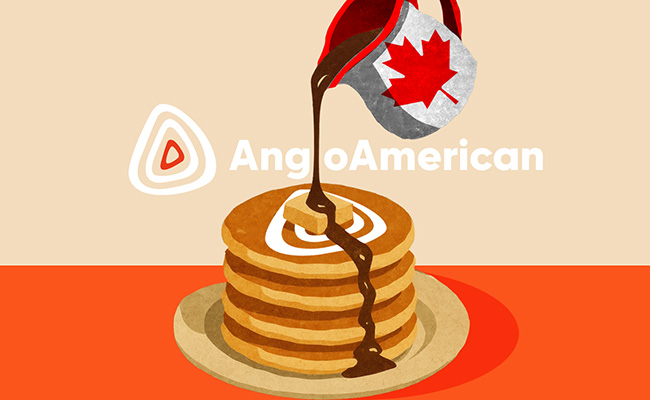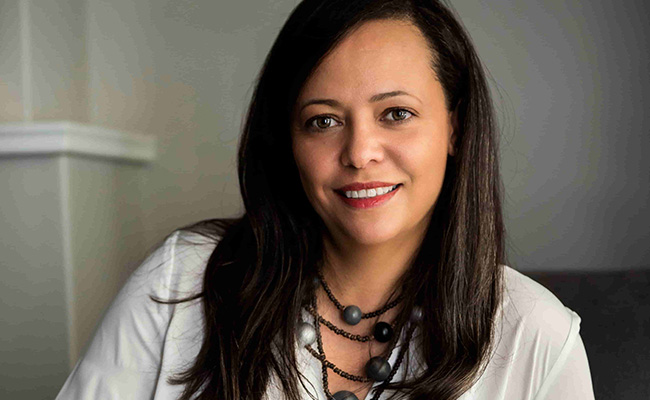The owner of EasyEquities has thrown its ambitions wide open after two years of stunning growth, and a doubling in its share price this year.
“The smallest cap in the top 40 is R70bn and we’re sitting at R3bn, so it’s about 23 times where we are today,” says Purple Group CEO Charles Savage, adding that the company’s lofty ambitions have historical precedent.
As it turns out, over the past decade, Purple has grown precisely 23-fold, an indication both of a new excitement around investing in households and stokvels, and a reflection of the fact that South Africa’s largest exchange, the JSE, has had a stellar year, having risen by nearly a third.
“Eleven years ago, EasyEquities was a R2m idea – that’s what Purple Group put in,” Savage tells Currency. Sanlam has since bought 30% of EasyEquities, so if you add that to its market capitalisation on the JSE, he says the company is now actually worth R5bn. There is also historical precedent overseas, where similar retail trading platforms are going gangbusters, none more so than the US platform Robinhood.
“If you had said to me 10 years ago, could Robinhood have been an S&P 500 company, I’d have said ‘no ways’. And I would have said the same of us. But having got to where we’ve got to, well anything less than that ambition isn’t worth pursuing,” he says.
Over a 10-year timeframe, the numbers are indeed impressive. A year’s worth of record-breaking customer deposits left EasyEquities with almost R81bn in assets under management for the year ended August, a rise of more than 38%. That, and a 15.7% increase in active clients, to 1,146,475 people, helped push revenue 21% higher to R487m. Perhaps more importantly for investors in Purple Group, its pre-tax profit was up 156%, to R111m.
Savage believes its assets could breach the R100bn mark in the next six months. But that’s only the start, he says: the company should be targeting a tenfold increase both in assets, as well as customers. Is 10-million customers in a country of 63-million people realistic, especially a low-income country with a pretty abysmal savings culture?
Here, Savage points to banking group Capitec, which now has 20-million customers, while TymeBank boasts 11-million. Sanlam has 7-million. In this sense, there is a growing number of people now in the formal financial market, and investing is the next step for them.
He says it’s not simply a pipe dream.“It’s also a mindset shift. You say it out loud, and then you say it out loud in front of other people, and when you do, you have to think bigger and better and bolder. It’s also about being more respectful of what we’ve created and protecting it – and making sure the ecosystem is ready [to be in the JSE’s] top 40. We’ve got no excuses; we’ve just got to go and deliver on it.”
High-growth expansion
Purple’s success doesn’t hinge on South Africa alone, however. It is about to launch its Kenyan business, which it believes could bring in 1-million new customers within five years — an achievable target in a country of 56-million people with an economy that grew at 4.5% last year. Then there’s the long-drawn-out saga that has been the company’s investment in the Philippines, an equally promising prospect given its GDP growth rate of 5.7%.
The snag has been that the regulators have been slow to grant full approval for the business. Savage says good news may be imminent. “We think [the regulators] will open the doors to the first 1,000 real customers, [but] we’re not saying anything because we’ve said it before and delivered nothing,” he says, somewhat ruefully.
In the Philippines, EasyEquities has already partnered with GCash, the largest mobile wallet provider in the country. Once the business is given the green light, it will provide the South African company with access to 100-million customers — a potential game changer for its trading volumes.
Back at home, it hasn’t been standing still either. EasyEquities has struck partnerships with Discovery Bank, which has 1-million customers, and Capitec, which has 15-million digital users. Once you add in EasyEquities’ own 2-million registered customers and its Kenyan prospects, that’s a potential market of 120-million people.
Savage says for Purple to realise its ambitions of being a JSE top 40 company, it only needs to convert 7% of those to clients. “That doesn’t sound so hard. And these aren’t the last markets we go to. I’d be disappointed if we can’t get to 10-million customers in South Africa in the next decade,” he says.
Size, of course, isn’t everything, but Purple’s financial results for the year to September show why scale can matter. While its cost to service its customers inched up 1% to R175 per user, the revenue generated per user has leapt by nearly a fifth to R302.
“The operating leverage that comes from those two numbers is kind of the key,” says Savage. “We’ve proven there’s stability in the cost base and [with] any incremental increase in revenue, 70% [of that] flows to the bottom line. And that just means that growth becomes more and more profitable.”
Of course, it helped that the JSE has had a humdinger run. Asked whether Purple has had a large dollop of luck in the results, Savage replies: “Is there ever not?” Markets have been helped by lower interest rates, of course, but it’s the volatility that really drove EasyEquities’ volumes. The crash in April, where US markets tumbled more than 20% in two weeks after US President Donald Trump imposed tariffs on the rest of the world, saw EasyEquities notch up record high deposits.
“It wasn’t markets [rising] that started the momentum, it was markets [going] down. And then obviously the positive returns that flowed after: anyone who bought that dip was up 25% in one month, so clients did very well,” says Savage. Every month since February 2023 has seen a new record in deposits.
Savage says the “strategic enabler” was its loyalty programme, named Thrive, where users were asked to pay R25 per month if they did not trade. “It was the loyalty programme that shaped that behaviour that got us front of mind, and it continues to be front of mind for customers,” he says. Last month, for instance, 146,000 people topped up their accounts – a new record.
Living up to expectations
In a way, the problem for Purple now is growth expectations. The company’s share price, which spiked to 337c in 2022 before crashing spectacularly afterwards, has flamed back into life. Purple’s share price is up 109% this year, but this makes it relatively expensive, on a price-to-earnings multiple of 50, when even Capitec is cheaper, on a multiple of 29.
Sure, it isn’t Palantir (a stratospheric multiple of 446), and Robinhood is trading on a similar multiple of 54 – but it’s evidently a stock that has to grow quite sharply to justify the exceedingly high hopes. Is this too much pressure?
“I think where I feel the pressure isn’t so much in the share price or the multiple, it’s to make sure we keep putting a better set of results in front of investors every single period,” says Savage. “If we consistently stack good results up we will retain (our) growth stock status.”
A surprising fact is that Purple Group boasts the highest number of retail investors on the JSE after Sasol, even though it has been shunned by institutions, partly because brokerage research on it has been non-existent. That may be changing though.
“There are asset managers that weren’t there 12 months ago that are starting to buy the share,” says Savage. “I think this is a durable shift in the trust factor and acceptance of the group, which is why we can set our ambitions on things which are just much bigger.”
Intriguingly, EasyEquities plans to introduce a rewards currency in the form of a stablecoin, which customers can use or monetise across the platform, as part of an upgrade to its Thrive rewards programme.
It expects this will bring in more customers, and keep existing clients more engaged. “The key is that if you charge less than the perceived value of what you give, you end up with happy customers. And happy customers refer and help you onboard [others] and become shareholders. And that’s the dynamic we’ve got to stay true to,” he says.
The writer owns shares in Purple Group.
This story was produced in partnership with Stanlib.
Top image: Purple Group CEO Charles Savage. Picture: supplied.
Sign up to Currency’s weekly newsletters to receive your own bulletin of weekday news and weekend treats. Register here.













Wish Purple Group a Happy Christmas and a Prosperous 2026 Hope that the CEO Charles Savage could set up a Fund to Illamanate Poverty/Drug abuse Centers
for the Youth/Development Centre Training for Job Placements within Purple Group so that we as Investors support this Initiative.Keep on Keeping on👏